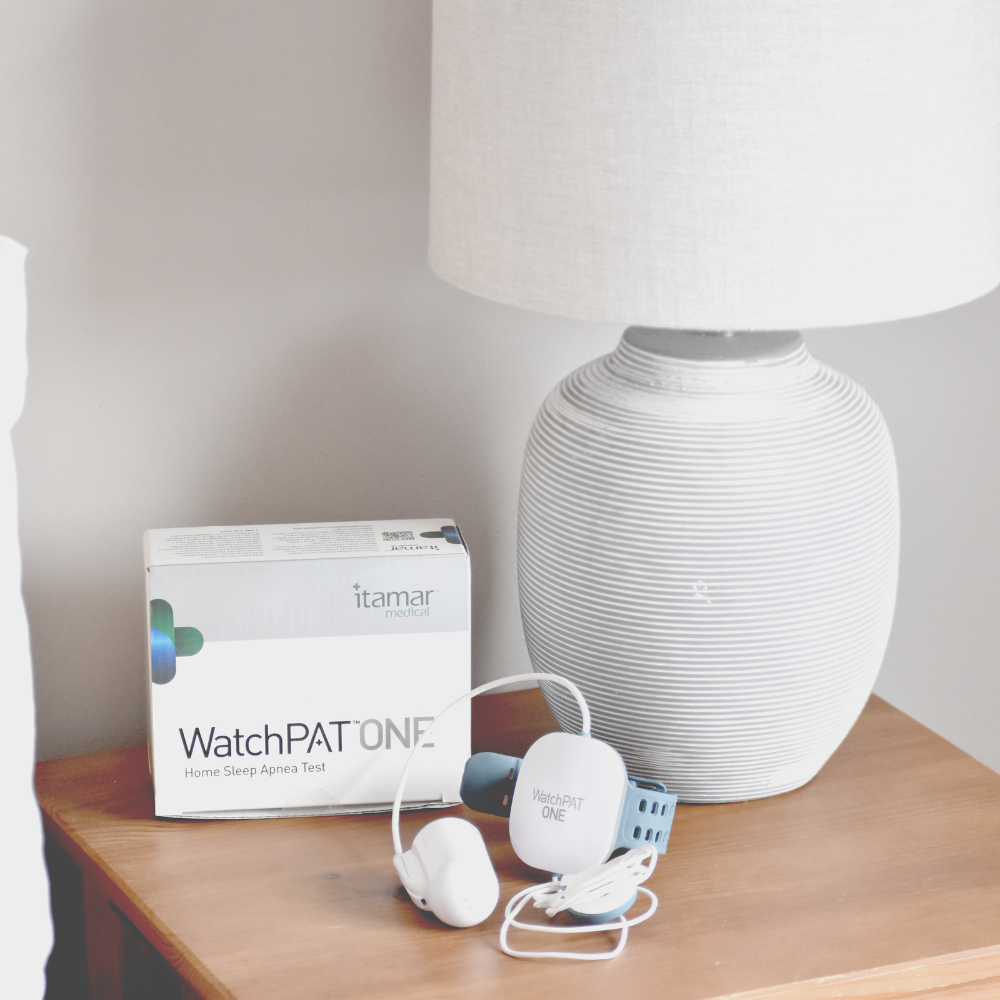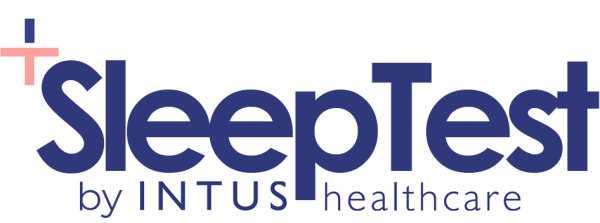Fact Checked
Intus Healthcare’s writers, customer service team, and sleep experts review and ensure this information is accurate.
Last updated on March 28th, 2025 at 01:08 pm
Yes, high blood pressure can make you tired; sleepiness is a symptom and a common warning sign of high blood pressure.
However, it can also indicate an underlying condition related to high blood pressure.
One of the most common reasons for tiredness and high blood pressure is due to a sleep disorder. In this article, we will explain the relationship between the two conditions.
Table of Contents
Does Sleep Apnoea cause high blood pressure?
Obstructive Sleep Apnoea (OSA) is a sleep disorder where your airways partially or completely block whilst asleep. OSA affects around 10 million people in the UK and approximately 1 billion people worldwide(1). High blood pressure (Hypertension) and Sleep Apnoea are closely linked, and it has been found that OSA affects 30-40% of people with hypertension (2).
Typical warning signs of Sleep Apnoea include choking during sleep and chronic snoring.
Why does Sleep Apnoea cause high blood pressure?
Those who suffer from OSA experience drops in blood oxygen levels due to breathing pauses. This prevents enough oxygen from circulating around the body. The drop in blood oxygen puts added pressure on the cardiovascular system and increases the release of stress hormones.
Slowed and interrupted breathing whilst asleep alerts the brain to send signals to increase blood pressure and heart rate in an attempt to increase oxygen getting to the body’s tissues. Although OSA only occurs during sleep, if left untreated and blood pressure rises, it will remain elevated when awake.
Obesity, Sleep Apnoea & hypertension
Obesity is a medical condition characterised by excess body fat. It is typically defined using the body mass index (BMI), with a BMI of 30 or higher considered obese.
On the other hand, hypertension refers to consistently elevated blood pressure levels. It is usually defined as having a systolic blood pressure (the top number) of 130 mm Hg or higher and a diastolic blood pressure (the bottom number) of 80 mm Hg or higher.
Obesity, hypertension and Sleep Apnoea can all influence and exasperate each condition. Excess body fat largely contributes to developing Sleep Apnoea.
Obesity can contribute to the development and worsening of hypertension through various mechanisms:
Increased Blood Volume: Adipose tissue (fat) is metabolically active and can release hormones and inflammatory substances that increase blood volume. This puts extra pressure on the blood vessel walls, causing higher blood pressure.
Insulin Resistance: Obesity is often associated with insulin resistance, which can result in higher insulin levels in the blood. Insulin resistance and high insulin levels may lead to sodium retention and increased blood pressure.
Can high blood pressure cause Sleep Apnoea?
High blood pressure can worsen Sleep Apnoea symptoms and encourage the development of the disorder. There is a close link between hypertension and poor sleep; a study found that people who slept less than 6 hours a night had a 20% higher risk of hypertension (3).
It is estimated that around 14 million adults in the UK suffer from high blood pressure, just over a quarter of the population (4).
The good news is that lifestyle changes such as adopting a regular sleeping schedule, changing diet and exercising regularly can help manage hypertension.
If lifestyle changes don’t make any significant changes in your blood pressure, it is advised to get tested for sleep-disordered breathing.
Does treating Sleep Apnoea lower blood pressure?
Starting treatment is essential if you or someone you know shows signs of Sleep Apnoea.
Treating your OSA will stabilise blood oxygen levels, improving blood pressure levels. Treating your OSA will also prevent other health complications from developing.
Treating your OSA will stabilise blood oxygen levels, improving blood pressure levels. Treating your OSA will also prevent other health complications from developing. The most widely used and effective way of treating OSA is CPAP therapy. CPAP therapy includes a CPAP machine, mask and tube. The machine provides a continuous flow of pressurised air to the user, keeping the airway open and is worn at night when sleeping. Studies have shown that those with both conditions using a CPAP machine have lower blood pressure during the day and night (5).
Alternatively, different lifestyle adjustments can help manage OSA symptoms; however, this is not considered a treatment.
How can I test my blood pressure?
According to the NHS, adults over 40 should test their blood pressure at least every five years. However, if you are at a higher risk of having high blood pressure, this should be checked more frequently.
Visit your GP or use an at-home blood pressure monitor kit.
What is Hypertension?
Hypertension is when the pressure in your blood vessels is unusually high. Because of this, the heart must work harder and cannot function correctly.
When both conditions are untreated, there is an increased risk of:
- Heart attack
- Stroke
- Heart disease
- Atrial fibrillation
- Cardiovascular disease
- Type 2 diabetes
Symptoms of high blood pressure:
- Shortness of breath
- Chest pain
- Dizziness
- Nose bleeds
- Headaches
Visit: bhf.org/uk for more information on the symptoms.
A regular blood pressure reading is less than 120/80 mmHg (6). It is usual for your blood pressure to go up and down throughout the day, but a constant high reading indicates an issue.
Think you have Sleep Apnoea?
Symptoms of Sleep Apnoea range from person to person, but here are some common warning signs:
- Morning headaches
- Memory loss
- Waking up with a dry mouth
- Anxiety
- Problems concentrating
- Low sex drive
- Snoring
- Breathing pauses during sleep
If you or someone you know has these symptoms, the first thing to do is order an in-home sleep test.

Home Sleep Apnoea Test
The test monitors your heart rate, snoring intensity, blood oxygen levels, body positioning, and more, providing accuracy comparable to testing used in sleep clinics for in-depth sleep analysis.
The simple-to-use test takes just one night to complete, and results are returned within two working days after completion.
Our experienced NHS-qualified sleep professionals independently analyse all studies, providing follow-up advice and support.
Round up
When action isn’t taken to treat either condition, symptoms of Sleep Apnoea and high blood pressure can worsen. This, in turn, can lead to other severe health conditions.
If you need any advice or help, contact us to speak to our friendly team.
About Our Editorial Team
Danni is a degree-educated content writer passionate about helping those with Sleep Apnoea sleep better; she works closely with our clinical and customer care teams to ensure that each article is thoroughly researched and accurate.
Her writing aims to inform, support, and advise readers about Sleep Apnoea, helping to raise awareness and promote effective treatment options.
She has written many health-focused articles, reaching hundreds of readers annually, to help people sleep better and live healthier lives.
Lateisha King is an experienced Sleep Clinician with advanced training in polysomnography and respiratory health.
With over six years of experience, including at the prestigious Guy’s and St Thomas’ NHS Foundation Trust Hospital, she has conducted and reviewed more than 500 diagnostic sleep studies.
Her expertise in sleep science ensures that all articles align with the latest data and treatment protocols, providing readers with trustworthy and practical advice to improve their sleep health and overall well-being.
REFERENCES
- Lyons, M. (2020). Global burden of sleep-disordered breathing and its implications.
Available at: https://onlinelibrary.wiley.com/doi/full/10.1111/resp.13838. (Accessed: October 25, 2022). - Surani, S.R. (2014) “Diabetes, sleep apnea, obesity and cardiovascular disease: Why not address them together?,” World Journal of Diabetes, 5(3), p. 381. Available at: https://doi.org/10.4239/wjd.v5.i3.381. (Accessed: October 25, 2022).
- CDC. (2021). High blood pressure symptoms and causes, Centers for Disease Control and Prevention. Centers for Disease Control and Prevention. Available at: https://www.cdc.gov/high-blood-pressure/about/?CDC_AAref_Val=https://www.cdc.gov/bloodpressure/about.htm. (Accessed: October 26, 2022).
- Pringle, P. (2019). Four million people are living with untreated high blood pressure, new estimates show. Available at: https://www.bhf.org.uk/what-we-do/news-from-the-bhf/news-archive/2019/may/four-million-people-are-living-with-untreated-high-blood-pressure. (Accessed: October 25, 2022).
- Konecny T, Kara T, Somers VK. (2013). Obstructive sleep apnea and hypertension: an update. Available at: https://pubmed.ncbi.nlm.nih.gov/24379177/. Accessed: 19.09.23
- Gov. (2013). The link between sleep duration and high blood pressure. Available at:https://pubmed.ncbi.nlm.nih.gov/23394772/. (Accessed: October 25, 2022).





